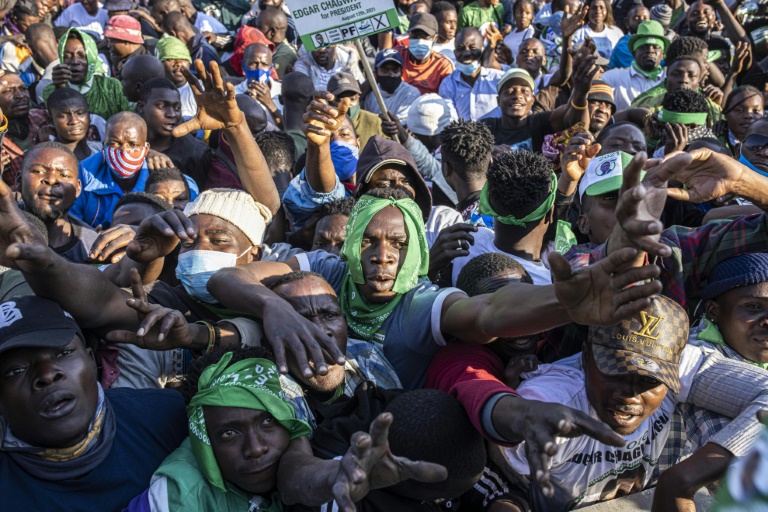Zambians were voting in nationwide elections on Thursday after a tense campaign dominated by economic woes and the impact of the coronavirus pandemic.
Sixteen presidential candidates are vying for the top job, but the frontrunners are incumbent Edgar Lungu, 64, and his long-time nemesis and business tycoon Hakainde Hichilema, 59, who are facing off at the polls for the third time.
Hichilema, who is running for a sixth time, is backed by an alliance of 10 parties.
Hundreds of people waited in long queues in the dark – to cast ballots at a secondary school in Lusaka’s Matero township.
President Lungu was among the first people to vote in Lusaka.
After casting his ballot at a school in Chawama, a poor neighbourhood of Lusaka, Lungu told reporters that “Zambians are ready to vote and they (have) come in numbers”.
Rising living costs have eroded the incumbent’s support base, surveys suggest, and the election could be even tighter than 2016 polls when Hichilema lost by around 100,000 votes.
Lungu, a lawyer by training, is accused of borrowing unsustainably, particularly from Chinese creditors, to finance a spree of infrastructure projects.
Under him, Zambia became the first African country to default on its sovereign debt since the coronavirus pandemic began, while inflation soared to 24.6 percent in June, the highest rate in more than a decade.
Africa’s second biggest producer of copper after the Democratic Republic of Congo, and the eighth producer in the world, missed another debt repayment this year.
“I am voting for change.
We can’t continue on this path,” said Andrew Daka, 20, who was voting for the first time in his life.
But Lungu says that “things are moving well in the country” and is confident of victory, although his critics point to the high cost of living, poverty and joblessness.
The vote will “be influenced by poor governance and the economy, which is biting,” said O’Brien Kaaba, a political scientist at the University of Zambia.
– Tough on dissent –
Tensions have flared in the run-up to polling in this southern African country of 17 million people.
Supporters of Lungu’s Patriotic Front (PF) party and Hichilema’s United Party for National Development (UPND) have clashed violently on several occasions, prompting Lungu to deploy the army.
Critics denounced the unprecedented move as a tactic to intimidate opposition voters, which the PF denies.
The president has also grown tough on dissent since he took power in 2015, raising concern of heavyhandedness if results are contested.
UPND supporters have meanwhile been keeping a low profile in the capital Lusaka, a Lungu stronghold, for fear of being attacked by PF counterparts.
Around seven million citizens are registered to vote for a president, legislators and local government representatives.
Polls opened at 6 a.m.
(0400 GMT) and close 12 hours later at more than 12,000 voting stations across the vast country.
The winning candidate must acquire more than fifty percent of votes to avoid a run-off, which analysts deem unlikely.
Lungu is confident of securing half-a-million votes more than Hichilema because “people now know me”.
“Zambia is at a crossroads,” Hichilema said Wednesday, pledging to redress the economy.
The opposition has accused the government of seeking to rig the ballot — allegations the PF has rejected.
Local and international observers will be monitoring polling stations, some of which will be using a biometric voter identification system for the first time.
Official results are expected by Sunday.











